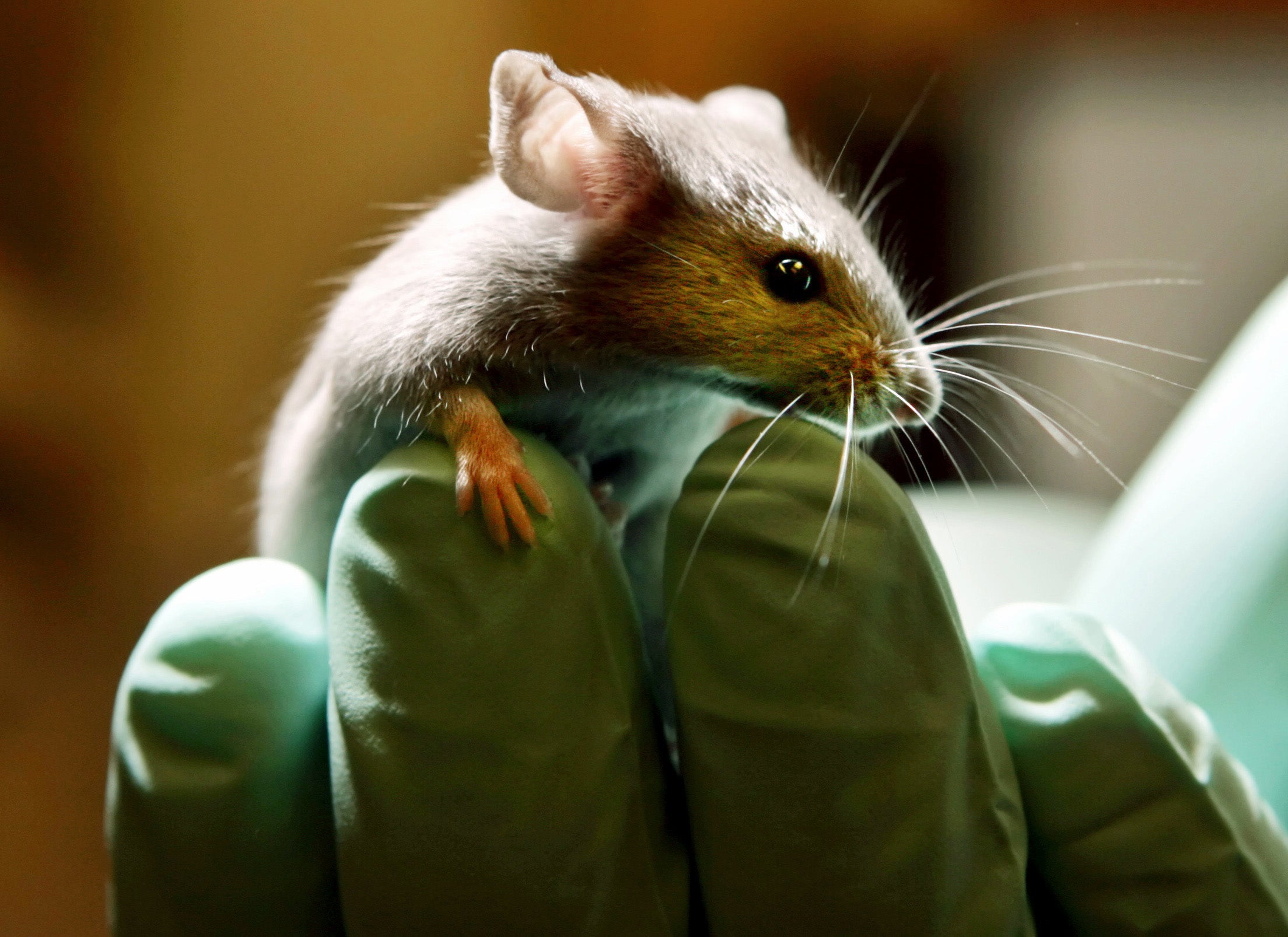A calorie is not just a calorie. That’s the lesson University of Wisconsin-Madison researchers said they demonstrated in a new study where mice lost weight while eating more.
The study, published recently in the journal Cell Metabolism, showed that mice eating less of a single amino acid called isoleucine lived longer, healthier lives. The mice in the study lost fat and became leaner while eating more calories. Researchers attributed that to a shift in their metabolism caused by the change in their diet.
Cutting the amount of the amino acid in their diet also seemed to have an impact on aging.
News with a little more humanity
WPR’s “Wisconsin Today” newsletter keeps you connected to the state you love without feeling overwhelmed. No paywall. No agenda. No corporate filter.
Mice fed a diet formulated to cut out two-thirds of their intake of isoleucine lived longer than mice in a control group. Male mice lived 33 percent longer, while females lived 7 percent longer. The mice were considered middle-aged when the study began, and still saw benefits from the change in diet.
“And they’re fitter throughout their lifespan, too,” said professor and metabolism researcher Dudley Lamming. “So they’re still able to run and climb, and they don’t grow as frail as normal animals do as they age.”
The mice also maintained steadier blood sugar levels and were less likely to develop cancer. Male mice experienced less age-related prostate enlargement.
Earlier research from UW-Madison showed that Wisconsinites with higher body mass index measurements ate more isoleucine. The amino acid is plentiful in foods including eggs, dairy, soy protein and many kinds of meat.
Lamming said he doesn’t expect his research to turn into a new fad diet. Humans need isoleucine to live and it would be difficult to even cut intake in half, he said.
But he said scientists may find ways to mimic the effect.
“Understanding these processes may someday lead to drugs and other therapies that could help us either dispose of isoleucine in some other way or reduce our ability to absorb it,” he told WPR.
It may be possible to cut back on isoleucine by eating healthier foods, he said.
Rozalyn Anderson is a professor of medicine at UW-Madison. She studies the connections between nutrition, metabolism, health and aging.
“What Dudley’s team has uncovered is very interesting, and it speaks to the composition of proteins in the diet and how small differences can have quite large scale effect,” Anderson said.
“The issue then, of course, for everybody, is how we translate this to humans, right? Because we’re not on purified diets where we can drop just the isoleucine out readily,” she continued. “But I think the value of it is really in the underlying biology and what it means, what types of things are impacted by small changes in diet. And that might inform us then as to how we might tailor diets for individuals who have particular conditions.”
Wisconsin Public Radio, © Copyright 2026, Board of Regents of the University of Wisconsin System and Wisconsin Educational Communications Board.





